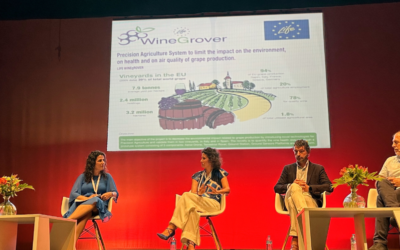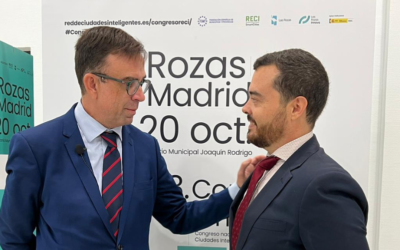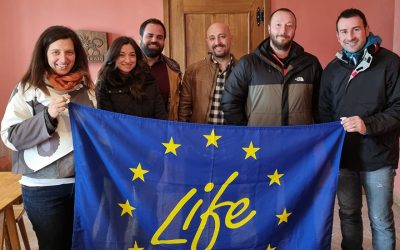Collaboration and regulatory frameworks as weapons for moving towards the green transition
Territories, institutions, universities and technology centers agree on moving forward through joint efforts to improve green strategies.
The Greencities 2024 Forum hosted a round table discussion on how initiatives should be carried out for municipalities to move towards the ecological transition.
Under the title “Knowledge Transfer for the Green Transition of Cities”, it was attended by Elisa Rivera, director general of Planning, Coordination and Knowledge Transfer of the Ministry of Science, Innovation and Universities; Carles Ruiz, president of the Innpulso Network and mayor of Viladecans; Patricia Molina, director of Cities, Territory and Environment at Tecnalia; Débora Domingo, vice-rector of Sustainable Development at the Polytechnic University of Valencia (UPV) and Daniel González-Bootello, president of Cluster. es.
Rivera focused the conversation on the fact that “only if the different actors take ownership of the challenge, it can be faced”, while admitting that, at times, “the regulatory framework can be a corset for innovation, but for example sandboxes allow us to go further”. He also encouraged everyone to use the missions and PERTEs to achieve “much more coordinated” governance.
For his part, Ruiz also delved into the “collaboration to move forward and leadership to act”, he recalled the need to “maintain the strategy of transition ecology at the country level and create new funding models that allow municipalities to approve new sandboxes to avoid clashing with regulations”.
Molina highlighted the value of researching through an “integral vision of all the knowledge to scale it to cities: a multidimensional vision that includes social acceptance”. And he also abounded in new regulatory frameworks to “protect the risk involved in innovation”. The importance of culture and training: dynamism in the training of those working in the administration.
In this context, Domingo bet on “taking the debate to the city to have safe spaces for experimentation” and gave the example of the UPV campus itself as a pilot space. And, in addition to calling for more flexible regulatory frameworks, he asked the administrations “not to be afraid of the trial and error involved in innovation”.
Finally, Gonzalez Bootello invited to generalize the study of the laws already in force, “which offer many more opportunities that are currently not used” and made it clear that, given the difficulties of SMEs to innovate, “clusters have the necessary capillarity to focus all the pieces of innovation and involve each actor”.
+ Related post
Know the advantages of being associated
Smart City Cluster enhances collaboration among its partners, favoring research, development and innovation in the different solutions and technologies aimed at the development of smart cities.
Smart City Cluster is an alliance of private companies and institutions that work for the development of smart cities.



